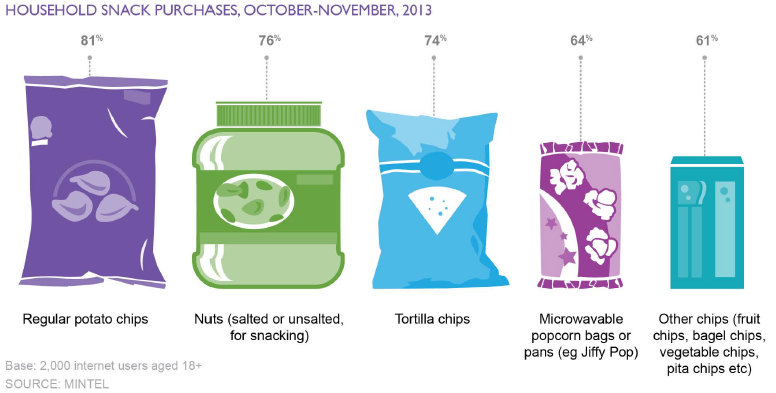What�s not to love about them? They are a health darling as they are high in protein, fiber, vitamin E, potassium, and healthy fats and low in unhealthy saturated fat. Recent research showing that that a 1 ounce serving daily may help reduce your risk of getting heart disease by 19 percent has only added to other studies touting the heart health benefits of nuts. The Food and Drug Administration (FDA) allows nuts to boast a health claim on their labels specifying that "scientific evidence suggests, but does not prove, that eating 1.5 ounces per day of most nuts as part of a diet low in saturated fat and cholesterol may reduce the risk of heart disease."
Nuts can also be a perfect snack when hunger hits between meals. In a study in the European Journal of Clinical Nutrition, 1� ounces of almonds consumed as a snack daily for four weeks helped to suppress hunger between meals. Because the participants were less hungry after munching on the almonds, they reduced their calorie intake by eating less at the next meal, so weight gain wasn�t an issue. The fiber, protein, and healthy unsaturated fats in nuts all contribute to satiety, or that feeling of fullness, between meals.
According to Mintel research, the consumption of nuts is the No. 2 snack choice among consumers and is projected to grow by leaps and bounds in the coming years among Americans:
The only downside to nuts is the potential for mindlessly over-consuming them right out of the jar and not realizing that you are adding 180 to 190 calories per ounce serving of extra calories to your daily diet. Here is what an ounce of nuts looks like:
Keep to a serving and make sure your nut snack replaces the another snack in your diet, not in addition to it.
Be well, Joan
Twitter: @JoanSalgeBlake


Comments
Post a Comment